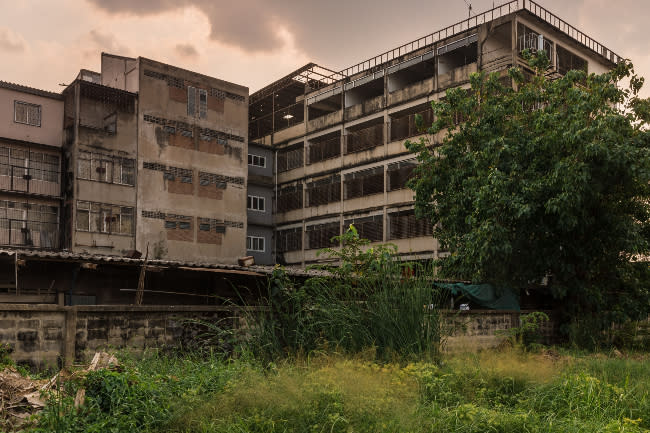Unfair To Punish Innocent Homebuyers, Lawmakers, Government Offers Incentives To Developers Building Affordable Homes In KL And, More

31st October – 7th November
Two lawmakers – who are representing constituents affected by the breach of bumiputra lots quota – are urging the Selangor government to go after the company and not punish the homebuyers.
Meanwhile, the government will offer incentives to developers who engage in affordable housing projects within Kuala Lumpur, in a bid to boost homeownership among city folk.
1. Unfair to punish innocent homebuyers, lawmakers
Two lawmakers – who are representing constituents affected by the breach of bumiputra lots quota – are urging the Selangor government to go after the company and not punish the homebuyers.
Notably, their constituents are being asked to pay penalty fees for buying residential units that were set aside for bumiputra, reported The Star.
“My stand is clear. The buyers are innocent and should not be paying for the charge as they did not benefit from the sale…It is unfair to punish them,” stated Selayang MP William Leong.
He suggested going after the company directors, given that the company is under liquidation.
Subang Jaya assemblyman Michelle Ng proposed implementing a better reporting mechanism as well as requiring developers to provide bank guarantees in order to prevent overselling of bumiputra lots.
She also suggested for the bank guarantee to be paid to the state via the Selangor Housing and Property Board (LPHS) to ensure compliance with bumiputra requirements.
Ng also called for the amendment of existing laws to make company decision-makers personally liable so they could not escape culpability by winding down companies.
2. Government offers incentives to developers building affordable homes in KL
In a bid to boost homeownership among city folk, the government will offer incentives to developers who engage in affordable housing projects within Kuala Lumpur.
Datuk Azman Abidin, an aide to Prime Minister Datuk Seri Datuk Seri Anwar Ibrahim, revealed that the incentives will comprise reduced development fees and higher project densities, reported The Star.
He shared that several vacant land in the capital has been identified and earmarked for development, including for housing projects.
“These projects are part of the Perumahan Madani initiative and are targeted towards the B40 and M40 segments,” he said.
Under the incentive programme, higher plot ratios will also be granted to developers involved in affordable housing projects. This may allow them “to build up to 1,400 units per acre”. However, the figure would be adjusted for pricier projects.
Azman made the statement at a press conference at the Kuala Lumpur City Hall (DBKL) headquarters to announce the gazettement of Kuala Lumpur Structure Plan 2040.
3. Unfair to blame property agents for tenants’ illegal activities
The Malaysian Institute of Estate Agents (MIEA) asserts that it is unjust to hold property agents accountable for the illegal activities of tenants in rented properties.
MIEA’s President Tan Kian Aun pointed that property agents, who are governed under the Valuers, Appraisers, Estate Agents and Property Managers Act 1981, are mandated to adhere to a code of ethics, such as properly screening prospective tenants, reported Free Malaysia Today.
He added that licensed property agents are also monitored by Bank Negara Malaysia and the Malaysian Anti-Corruption Commission, hence, strictly follow the code of ethics.
However, there is no guarantee that tenants would abide by the law once they occupy the property.
“The problem is what the tenants do after the profile screening. When they do something illegal later, it’s not fair to blame us since we have done our part in conducting a proper check,” said Tan.
Ramli Yoosuf, Director of the Commercial Crime Investigation Department, recently warned owners and property agents that they could face legal action for illegal activities occurring in their properties.
They could be prosecuted for cheating under Section 420 of the Penal Code, Section 34 for joint liability as well as Section 109 for abetment.
4. Government to expand rent-to-own scheme for B40, M40 groups
The government plans to expand the Rent-to-Own scheme to make homeownership more accessible to those belonging to the B40 and M40 income groups.
Nga Kor Ming, Minister of the Local Government Development (KPKT), said the cooperation with financial institutions would be continued to provide buyers with attractive and sustainable financing packages, reported Bernama.
He shared that the ministry through Syarikat Perumahan Negara Berhad (SPNB) and PR1MA Corporation Malaysia (PR1MA) has been actively developing housing projects like the PR1MA Housing and SPNB Housing programmes for the M40 group.
So far, a total of 28,583 units of SPNB homes have been completed, with 1,024 units under construction and 531 units in planning stage.
Meanwhile, PR1MA has completed 35,454 affordable housing units, with 14,427 units still under construction and 3,765 units in planning stage as of 15 October.
To enhance the residents’ living conditions, the government has set the standard size for People’s Housing Project (PPR) units at 750 sq ft, with each unit featuring a minimum of two bathrooms and three bedrooms.
5. Local councils urged to cap assessment hike to 30%
Local councils should cap the assessment rate hike to 30% so as not to burden the people.
Mengkibol Assemblyman Chew Chong Sin pointed that some ratepayers are facing significant hike in assessment rates of up to 110% for residential properties within Kluang, reported The Star.
“I understand that the Selangor government is also planning a property evaluation exercise soon and is going to limit the increase to 30%,” said the assemblyman.
He noted that while the Local Government Act 1976 (Act 171) allows property valuation, it does not mean the state should immediately increase the assessment fees.
It is within the discretion of the local government whether to execute or postpone an assessment hike.
Chew urged local councils to prioritise service quality regardless of the assessment fees charged on property owners.
The fourth most populated district in Johor, Kluang is overseen by the Kluang Municipal Council (MPK) and is one of the five local councils that conducted valuation exercises on properties.
6. Proposed inheritance tax unfair, may adversely affect families
Economists believe the introduction of inheritance tax may adversely affect family units, especially if the heirs cannot afford the levy.
Barjoyai Bardai of Universiti Tun Abdul Razak expects inheritance tax to affect widows and families the most, reported Free Malaysia Today.
Despite a high threshold, he noted that the increasing prices of homes in the last 30 years could still make middle-income families (M40) liable for the tax, eventually forcing families to sell their inherited house and lead to family disintegration.
Nazari Ismail of Universiti Malaya also pointed that the proposed inheritance tax is unfair, taxing individuals who have inherited wealth, usually from parents, creating an additional financial burden.
He said the cost of living issue should be addressed by introducing system changes and not by reintroducing inheritance tax.
Anthony Cho, former chairman of Melaka Real Estate and Housing Developers’ Association, also underscored that Malaysia is not a developed country, where people are not even paying their taxes as they struggle with their livelihoods.
With the property market struggling due to uncertain economic conditions, imposing an inheritance tax could only deter buyers as well as discourage parents from making property investments, he said.
7. Task force records 655 delayed, sick and abandoned housing projects
The Task Force on Private Housing and Abandoned Projects (TFST) has registered 655 delayed, sick and abandoned housing projects, with a total gross development value of RM79.03 billion, as of 30 September, said Akmal Nasrullah Mohd Nasir, Deputy Minister of Local Government Development.
Of these, 68 were delayed projects, 476 were problematic and 111 were abandoned, reported Bernama.
TFST aims to protect the affected buyers’ interest, while developers should work to address the problems brought about by such projects.
“Therefore, TFST can consider recommending that projects under government or state authority housing programmes like these receive benefits from the Special Guarantee Fund amounting to RM1 billion, as announced in the Madani 2024 Budget once it is approved,” said Akmal.
He revealed that TFST is actively engaging with various stakeholders to identify the main issues affecting Malaysia’s housing industry.





